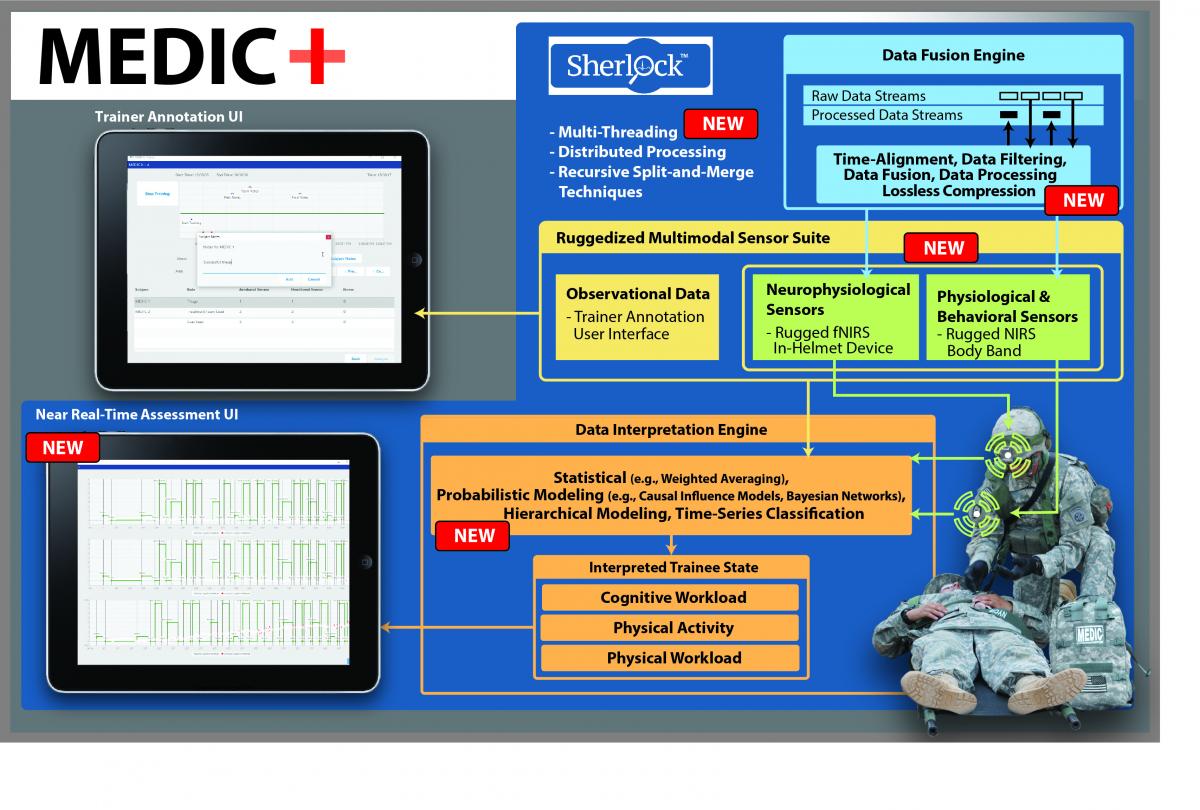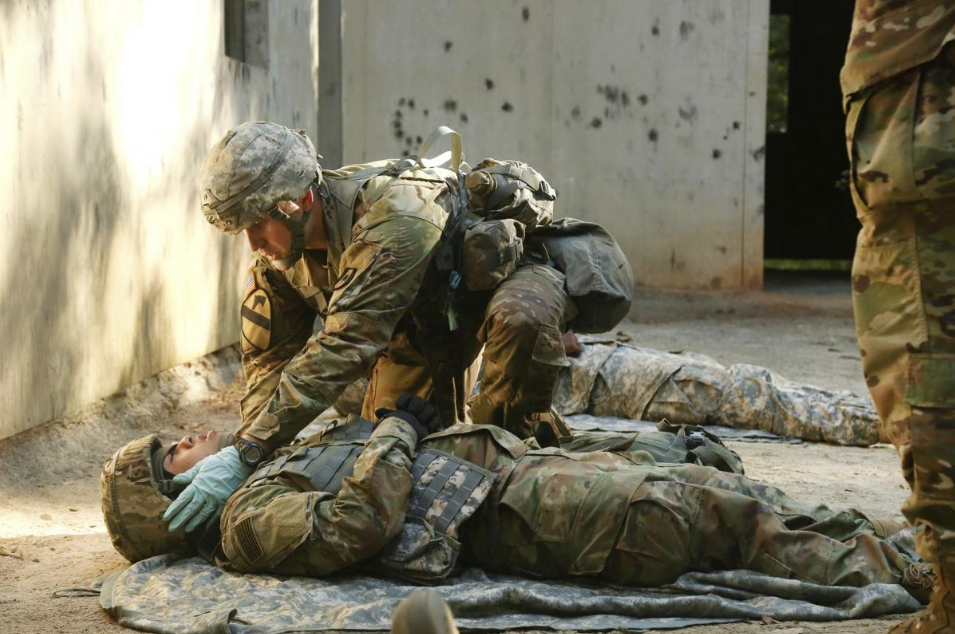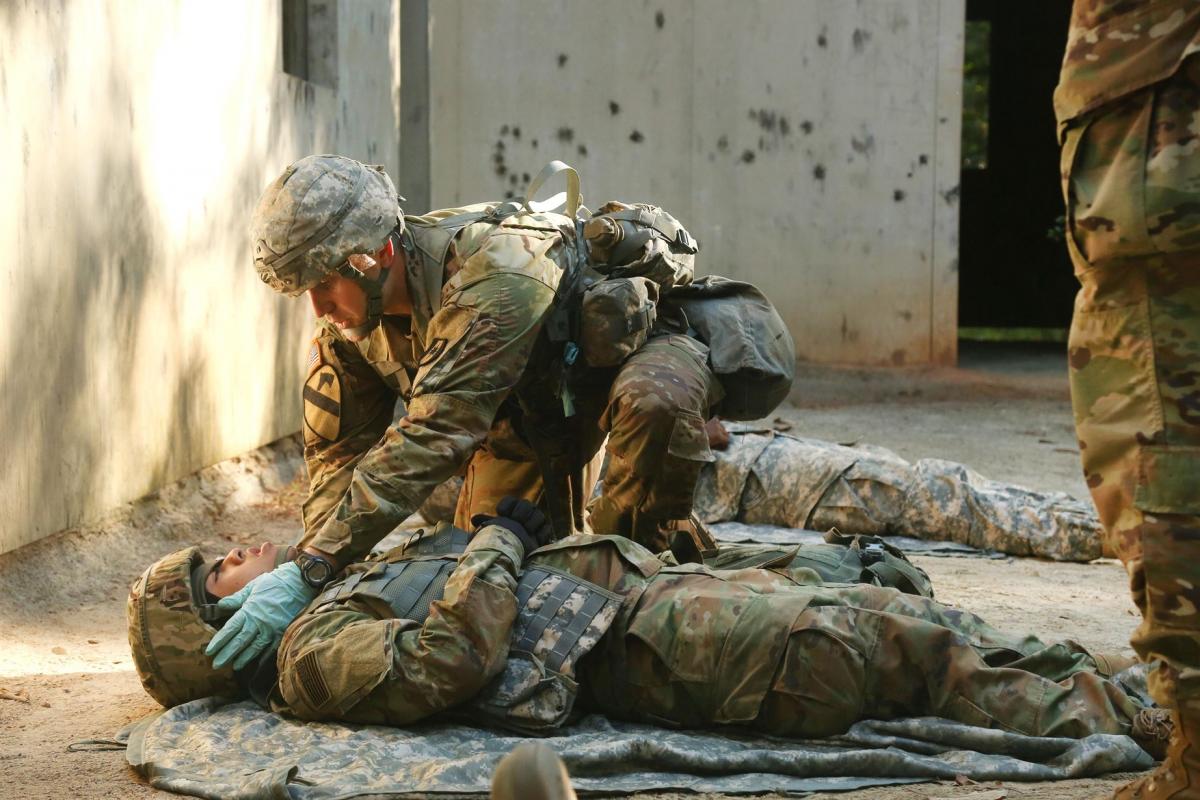Charles River Analytics Inc., developer of intelligent systems solutions, has announced an additional two-year US Army contract valued at $1 million to field-test, refine, and transition a system to automatically sense indicators of cognitive workload.
Under a previous Army contract, Charles River Analytics developed a system to improve training by Monitoring, Extracting, and Decoding Indicators of Cognitive Workload™ (MEDIC). MEDIC assists trainers by automatically sensing indicators of cognitive workload to augment performance observations, offering insight into the factors underlying performance. Under this new effort, Charles River will further develop this system, ruggedizing sensors, and refining data processing to allow MEDIC to communicate trainee state in real time across the wide variety of live training scenarios used to prepare medics.
“Building on our earlier successes, we have been awarded a second Phase II effort to further harden, commercialize, and transition MEDIC,” said Dr. Bethany Bracken, Senior Scientist at Charles River Analytics, and Principal Investigator on MEDIC. “In fact, we are very excited that this brain sensor device is now commercially available.”
US military medical personnel may be deployed to operational environments where their success saving lives depends on their ability to act quickly and effectively. Currently, trainers must infer competence by observation alone—a challenging task. In the field, combat medics who experience cognitive overload due to inexperience or lack of skill may hesitate, make judgment errors, or fail to attend to critical situational details. Skills that are not mastered to the point of automatic response will not transfer optimally.
A soldier performs tactical field medical care during Expert Field Medical Badge testing. (Image source: Defense.gov)
To help military medical personnel master necessary skills for combat readiness, MEDIC includes a multimodal suite of unobtrusive, field-ready neurophysiological, physiological, and behavioral sensors.
“We will improve this sensor to make it wireless and less obtrusive, as well as resistant to sand, sun, and other extreme environmental characteristics. We are also enabling real-time sensing, processing, and expression of cognitive workload, increasing the accuracy for assessed human states, and providing an intuitive display of information to trainers in real time,” added Dr. Bracken.
To use MEDIC, a device that determines brain blood oxygenation is mounted inside the trainee’s helmet to measure indicators of cognitive load, and a band that includes additional sensors is attached to the trainee’s arm to measure indicators of physical activity. A trainer can enter details of the simulation into the system through MEDIC’s user interface prior to the actual exercise. As the training scenario unfolds, the trainer can take notes and record time-tagged photos and videos to record performance, which are then overlaid with the data from trainee-worn sensors.

MEDIC’s capabilities incorporated into the Sherlock™ software tool
MEDIC’s capabilities have been incorporated into Charles River’s Sherlock™ software tool, a platform for prototyping solutions on physiological, neurological, and behavioral state.
In recent months, we demonstrated MEDIC at the Medical Health Systems Research Symposium, the Association of Military Surgeons of the United States meeting, and the Interservice/Industry Training, Simulation and Education Conference (I/ITSEC).
MEDIC is one of Charles River’s Healthcare Support and Training efforts, which address medical skills training, therapy and decision support tools, as well as sensor and sensing technologies. We have also developed the TMT tourniquet training system, as well as the STAT tablet-based training system, which presents a virtual patient in multiple trauma scenarios for efficient and effective learning, rehearsal, and assessment.
This work is supported by the US Army Medical Research and Materiel Command under Contract No. W81XWH-17-C-0205. The views, opinions and/or findings contained in this report are those of the authors and should not be construed as an official Department of the Army position, policy or decision unless so designated by other documentation. In the conduct of research where humans are the participants, the investigators adhered to the policies regarding the protection of human participants as prescribed by Code of Federal Regulations (CFR) Title 45, Volume 1, Part 46; Title 32, Chapter 1, Part 219; and Title 21, Chapter 1, Part 50 (Protection of Human Participants).
The appearance of U.S. Department of Defense (DoD) visual information does not imply or constitute DoD endorsement.


